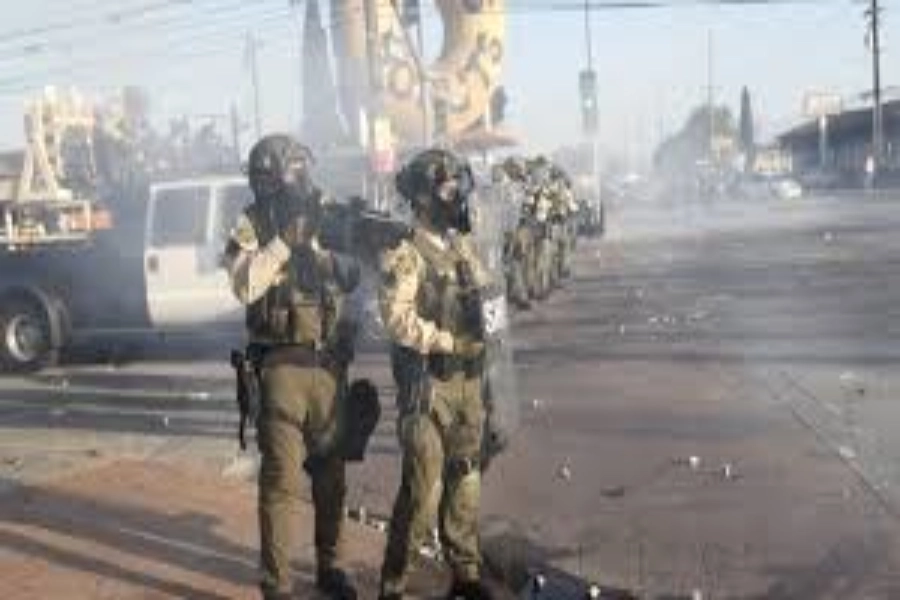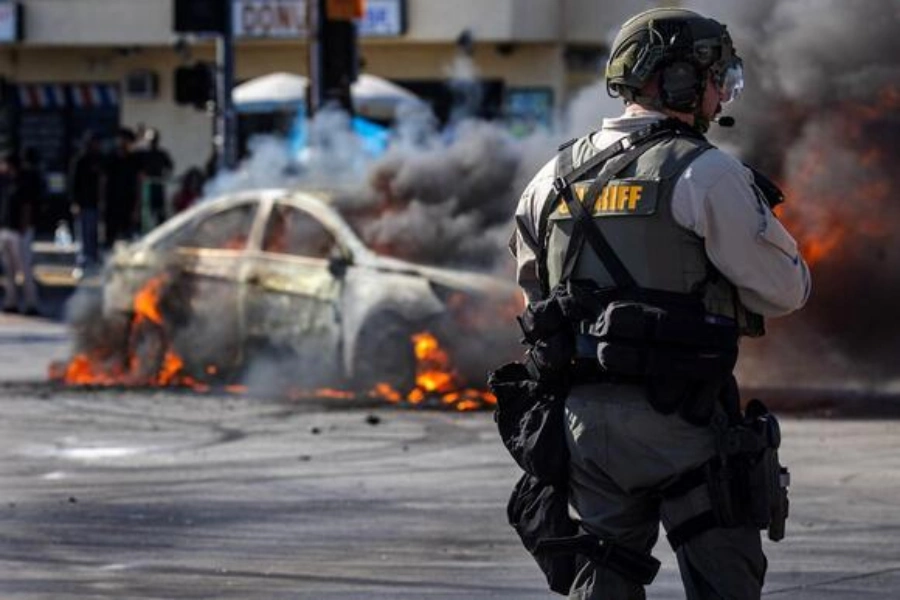The LA riots 2025 mark a turbulent chapter in the city’s history, echoing past unrest while reflecting today’s complex social and political realities. Triggered by recent immigration enforcement raids in predominantly Latino neighborhoods, the clashes have sparked widespread debate on immigration policy, law enforcement practices, and civil rights in the United States.

What Are the LA Riots 2025?
The 2025 LA riots erupted following aggressive Immigration and Customs Enforcement (ICE) operations targeting undocumented migrants across Los Angeles. Over 100 arrests were reported within days, leading to protests and confrontations with federal agents. The unrest rapidly escalated, prompting a federal response including the deployment of 2,000 National Guard troops to restore order.
Key Events Leading to the Riots
-
Increased ICE raids in Westlake District and South LA.
-
Community backlash against what many viewed as aggressive and indiscriminate arrests.
-
Large-scale protests and clashes with law enforcement in Paramount and other areas.
-
Federal order by then-President Donald Trump to deploy National Guard forces.
-
Legal and political pushback from California’s Governor Gavin Newsom and LA Mayor Karen Bass.
Legal Framework Surrounding the LA Riots
Use of National Guard and Federal Troops
Under the Insurrection Act of 1807, the President of the United States has the authority to deploy federal troops, including the National Guard, to suppress civil unrest or rebellion. This power can be exercised with or without the consent of state governors in specific circumstances, such as:
-
When state authorities are unable or unwilling to enforce federal laws.
-
When there is rebellion or insurrection against the U.S. government.
-
To enforce federal laws and restore public order.
In the case of the LA riots 2025, the federal government cited the need to “regain order” amid escalating violence and obstruction of immigration enforcement operations.

Controversies and Civil Rights Concerns
Critics argue that the deployment of armed forces in urban protests raises serious civil liberties issues, including:
-
The risk of excessive use of force against peaceful protesters.
-
Potential racial profiling and targeting of minority communities.
-
Erosion of public trust in law enforcement and government institutions.
-
The constitutional balance between state and federal powers.
California officials condemned the deployment as inflammatory and warned it could escalate tensions further.
Social and Political Implications
The LA riots 2025 are not merely isolated incidents of unrest but symbolize deeper societal fractures in the U.S., especially concerning:
-
Immigration policy and enforcement intensity.
-
Racial and ethnic disparities in law enforcement actions.
-
Socioeconomic inequalities in urban communities.
-
Political polarization between federal and state governments.
FAQs
What caused the LA riots in 2025?
The riots were sparked by increased ICE raids targeting undocumented immigrants in Los Angeles, which led to community protests and violent clashes with federal law enforcement.
Why did the National Guard get involved?
The National Guard was deployed under presidential authority to support law enforcement after protests escalated and obstructed immigration enforcement, threatening public safety.
Are such deployments legal?
Yes, under the Insurrection Act and other federal laws, the President can deploy the National Guard or federal troops to restore order during civil unrest, although this remains controversial and often challenged.
What are the concerns about using military force in civilian protests?
Concerns include the potential for human rights violations, excessive force, racial discrimination, and undermining democratic protest rights.
How have local leaders responded to the deployment?
California Governor Gavin Newsom and LA Mayor Karen Bass strongly criticized the federal deployment as unnecessary and provocative, urging peaceful protest instead.
Conclusion
The LA riots 2025 highlight ongoing tensions at the crossroads of immigration enforcement, civil rights, and federal-state relations. Legally justified but politically fraught, the use of military forces in domestic unrest raises critical questions about the balance between security and liberty. As Los Angeles grapples with these challenges, the events serve as a stark reminder that sustainable solutions require addressing root social inequalities and fostering trust between communities and authorities.
